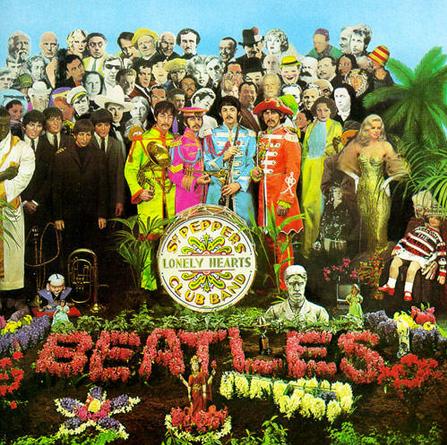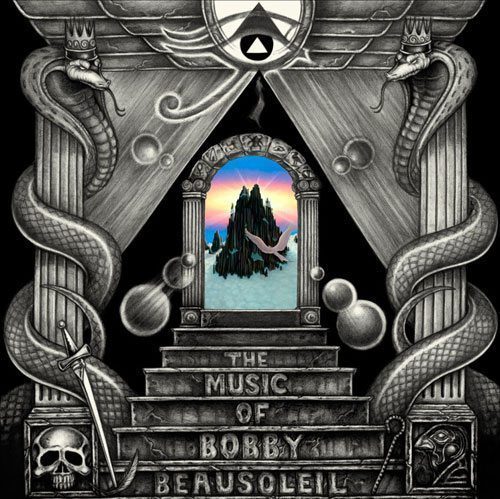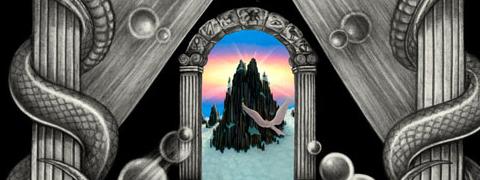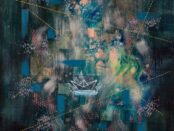[dropcap style=”font-size:100px; color:#992211;”]’D[/dropcap]espite the chill, Beausoleil is shirtless, wearing only a pair of prison-issue denim trousers, and it is clear that he is satisfied with his appearance, his body particularly, which is lithe, feline, in well-toned shape considering that he has been incarcerated more than a decade.
His chest and arms are a panorama of tattooed emblems: feisty dragons, coiled chrysanthemums, uncoiled serpents. He is thought by some to be exceptionally good-looking; he is, but in a rather hustlerish camp-macho style. Not surprisingly, he worked as an actor as a child and appeared in several Hollywood films; later, as a very young man, he was for a while the protege of Kenneth Anger, the experimental film-maker (Scorpio Rising) and author (Hollywood Babylon); indeed, Anger cast him in the title role of (his short film) Lucifer Rising.’
Truman Capote wrote that as a prelude to his revelatory interview with Bobby Beausoleil, way back in the nineteen seventies. The diminutive writer, a self confessed ‘ugly faggot with a lisp,’ interviewed most of the big hitters in the American murder club and wrote one solid masterpiece, In Cold Blood, which focused a clean and refreshing eye on the murky True Crime genre. 
Mixing business with pleasure he probably stored up enough macabre masturbatory fantasies to fuel several lifetimes while spending time alone with the lifers in their jail cells, never forgetting that his mission was to stubbornly probe these dangerous men about the emotional drives that led to their bloodthirsty capers.
And of course he puts Kenneth Anger at the forefront of his intimate chat with BB. Anger is a visionary filmmaker and the supreme projector of the California Death Ray. From his sorcerer’s eyes it beams directly at the bastions of old-aeon thinking. Back in the nineteen sixties Anger’s satanic films, performance art/ceremonial magic shows and publicly-expressed admiration for the late Aleister Crowley attracted much interest from both chart topping musicians and up and coming filmmakers such as Spielberg and Scorsese.
Thelema
Twenty years after his death, Crowley’s explosive new age philosophy still managed to cast a glistening shadow over the swinging sixties. Even the socially acceptable Beatles were careful to ensure that an image of the Great Beast was present on the cover of Sgt. Peppers Lonely Hearts Club Band. Anger was riding high on the crest of this occult wave and planning a major work to promote Crowley’s religion of Thelema. This would be his first attempt at a project that would be fraught with unforeseen difficulties.
‘‘Lucifer is a teenage rebel and he must be played by a teenage boy. It’s typecasting’’
Before becoming Anger’s sultry angel Bobby Beausoleil ‘my name means beautiful sun in French’ played guitar and sang in a band with David La Flamme the electric violinist who would later find success with It’s a Beautiful Day. He was also a founder member of the embryonic Love, when they were known as the Grass Roots, which put him in the dubious company of the mixed-race, outrageously talented and crazier than a box of frogs, Arthur Lee.
As a teenager BB lived in the notorious Love House in LA. It was the former home of film star/morphine addict Bela Lugosi and designed to resemble a gothic castle.
When BB, nicknamed ‘Cupid’ by Lee, was sidelined for being too young (and perhaps too handsome) for the band his replacement was the classically trained Bryan McClean, who wrote their best known song: ‘Alone Again Or’. He also turned down an invitation to visit the Tate household on the very night that the Manson Family members slaughtered those present.
Lucifer Rising
Anger caught Bobby on the rebound and announced to the world that he had found the star of his Crowley inspired epic. BB was to be the Lucifer of Lucifer Rising. Principal photography was completed but star and director fell out after the shoot. As a result, according to Anger, BB left town with most of the footage in his travelling bag and an Anger curse hot on his heels. Beausoleil refuses to confirm this and claims that Anger himself was responsible for the loss of the valuable celluloid.
Ever the dedicated filmmaker, Anger salvaged what he could from the debacle and left for London where the Stones were reeling from the recent massive success of their rivals’ Sgt. Pepper album. They were seeking a new direction and Anger turned up just in time to help them change their image from ‘rock rebels’ to ‘Satanic messengers’.
Although Keith Richards is curiously reticent on the matter in his recent autobiography, at the time he described himself proudly as Anger’s ‘right hand man’, which is an uncomfortable position for a follower of the left hand path. The portable Magus of LA was swiftly welcomed into the Stone’s inner circle and found himself in the company of Marianne Faithfull, Art dealer Robert Fraser, John Lennon, Yoko Ono, fellow occultist writer/director Donald Cammel and the Barbarella actress Anita Pallenberg.
There is no show without punch and no black magic without a witch. By the time Anger came on the scene Pallenberg had slept with all three of Rolling Stone’s front men and swiftly turned to the new resident wizard for magical advice. According to Stone’s biographer Tony Sanchez she once soaked up the blood of a Moroccan man who had died a violent death into a perfumed handkerchief. This was after Anger had claimed that such an item could be used to cast a powerful curse.
Sympathy for the Devil
Pallenberg is also credited with singing backing vocals on the track ‘Sympathy for the Devil’, a song that Anger claims to have inspired. [quote]the Stones lost much of
their dark hypnotic
appeal on that bloody
sunlit afternoon. It has
never returned[/quote]
As ‘payment’ for Anger’s services to court he was allowed to film, without sound, sections of the Rolling Stones’ Hyde Park concert, which was ‘dedicated’ to the man they had recently destroyed: Brian Jones. Anger combined this material with Vietnam War newsreel footage and what remained of the original Lucifer celluloid to produce the short film: Invocation of my Demon Brother. He then set Jagger loose with a Moog synthesizer to compose and perform a minimalist soundtrack.
The result is a razor edged portrait of the end of the hippie dream where ‘every cut hurts’.
The Stones were completely out of their depth in this hoodoo territory, and their dark trip came to an abrupt end when they felt the direct heat of the California Death Ray at an overcrowded concert held in a speedway circuit in Altamont Northern California. They had foolishly allowed a local chapter of the Hell’s Angels to perform security duties. During the show some sections of the audience were beaten with pool cues and one was stabbed to death by a wild angel.
The film of the event shows the usually imperious Jagger whining and pleading with the unruly audience to: ‘‘show some love’’. They don’t and the Stones lost much of their dark hypnotic appeal on that bloody sunlit afternoon. It has never returned.
By this time BB had been convicted of murder in the first degree and sentenced to life. While his old mentor was busy entrancing the stars of the day BB’s winding road had led him way down to the ‘anything goes’ philosophy of the Manson cult. As Truman Capote discovered when he transcribed the interview with the man he called Robert:
RB reaches for his guitar, tunes it, strums it, sings: “This is my song, this is my song, this is my dark song, my dark song …” Everybody always wants to know how I got together with Manson. It was through our music. He plays some, too. One night I was driving around with a bunch of my ladies. Well, we came to this old roadhouse, beer place, with a lot of cars outside. So we went inside, and there was Charlie with some of his ladies. We all got to talking, played some together; the next day Charlie came to see me in my van, and we all, his people and my people, ended up camping out together. Brothers and sisters. A family.
TC: Did you see Manson as a leader? Did you feel influenced by him right away?
RB: Hell, no. He had his people, I had mine. If anybody was influenced, it was him. By me.
TC: Yes, he was attracted to you. Infatuated. Or so he says. You seem to have had that effect on a lot of people, men and women.
RB: Whatever happens, happens. It’s all good.
It’s all good is what the man says, however the collision of two dominant personalities would certainly be the trigger for the first and, perhaps, all three of the gory and ritualistic Manson Family killings.
And, unlike Charlie, BB took a hands-on approach to the matter.
TO BE CONTINUED

Having completed principal photography on phase one of the Sharks revival SWP is now preparing to edit the One Last Thrill feature documentary. Sharks themselves are ‘dropping a big one’ by releasing a double album Dark Beatles/White Temptations in April 2018.
In his spare time the author kayaks the muddy river Ouse and walks the South Downs which gently enfold his home town of Lewes.




















